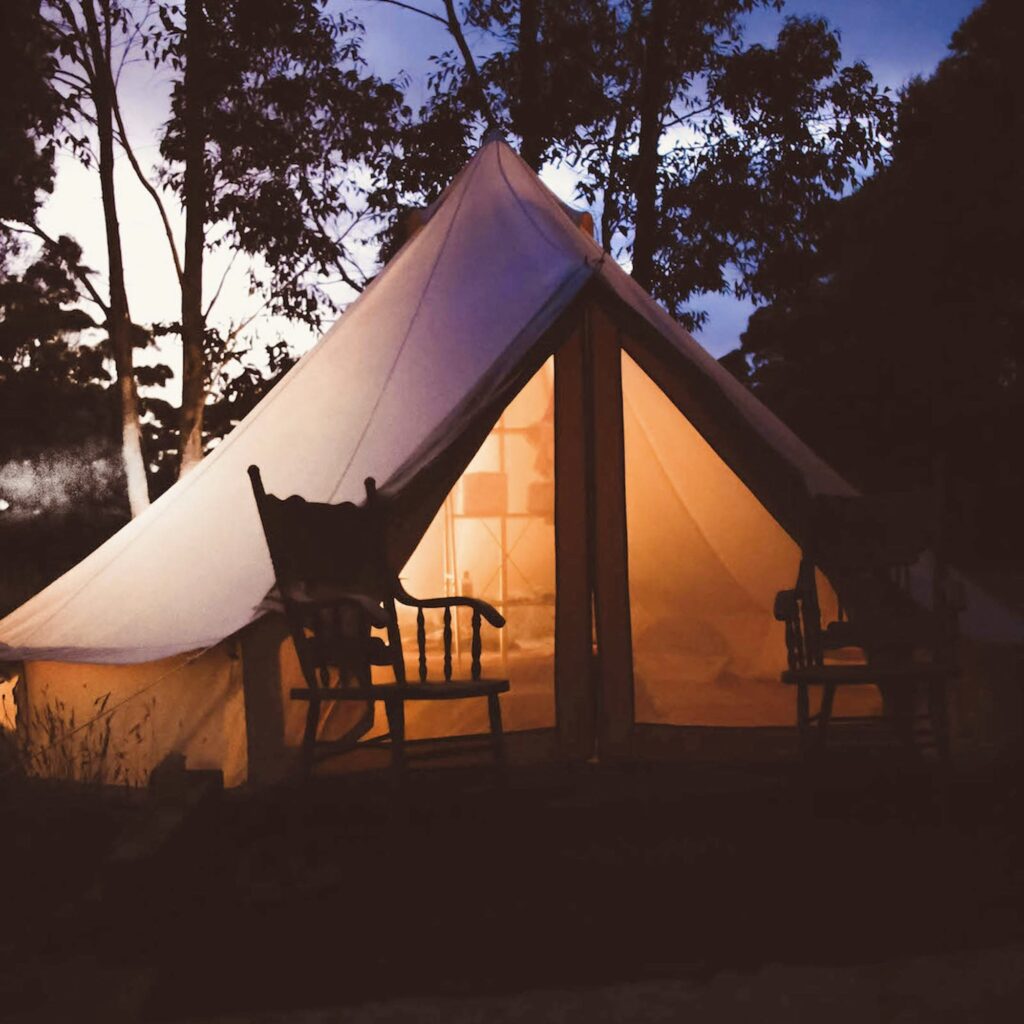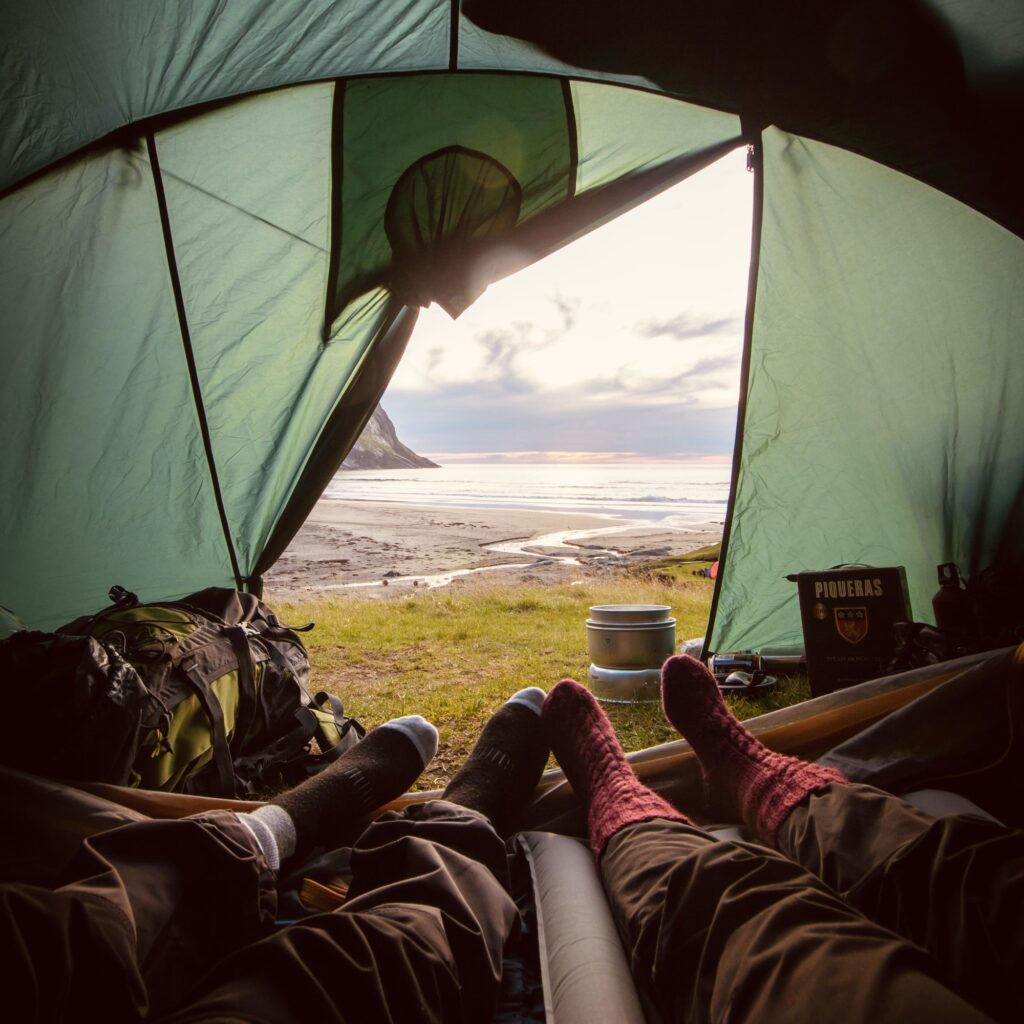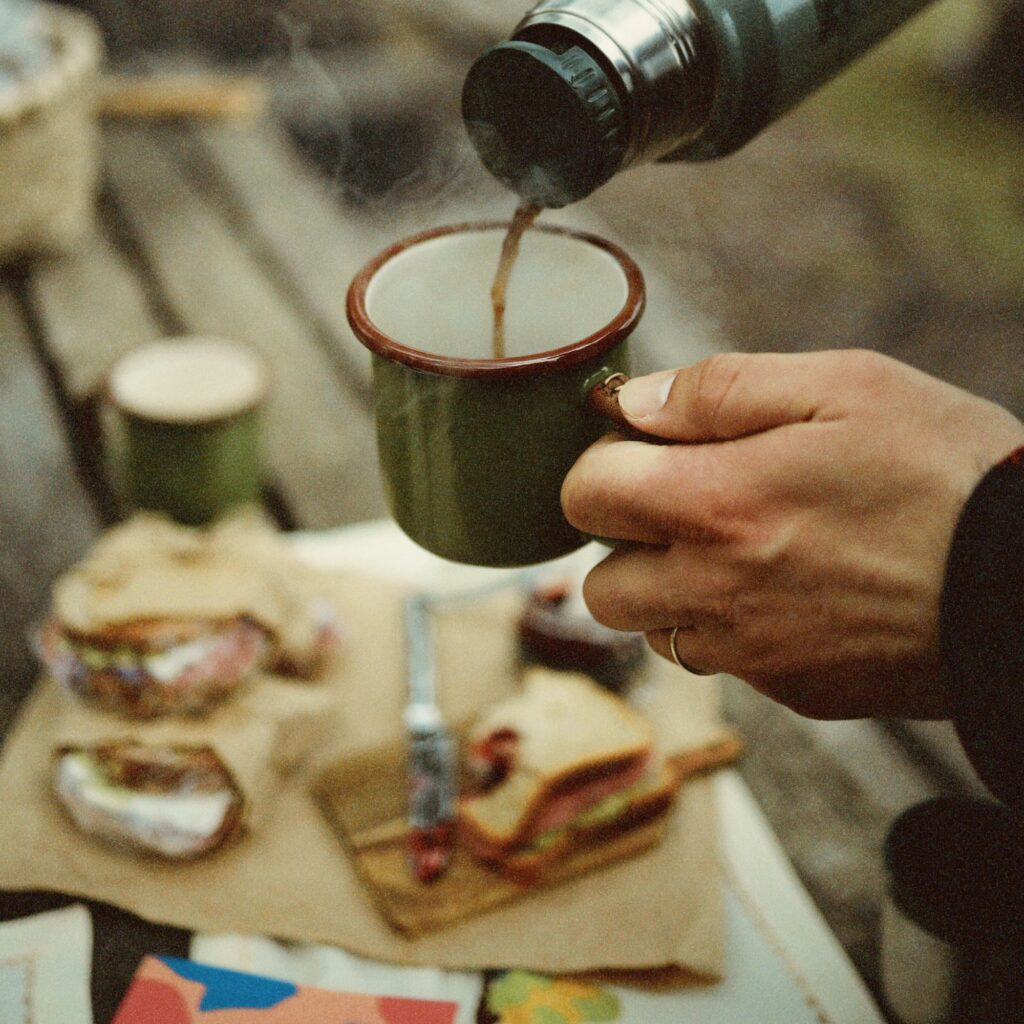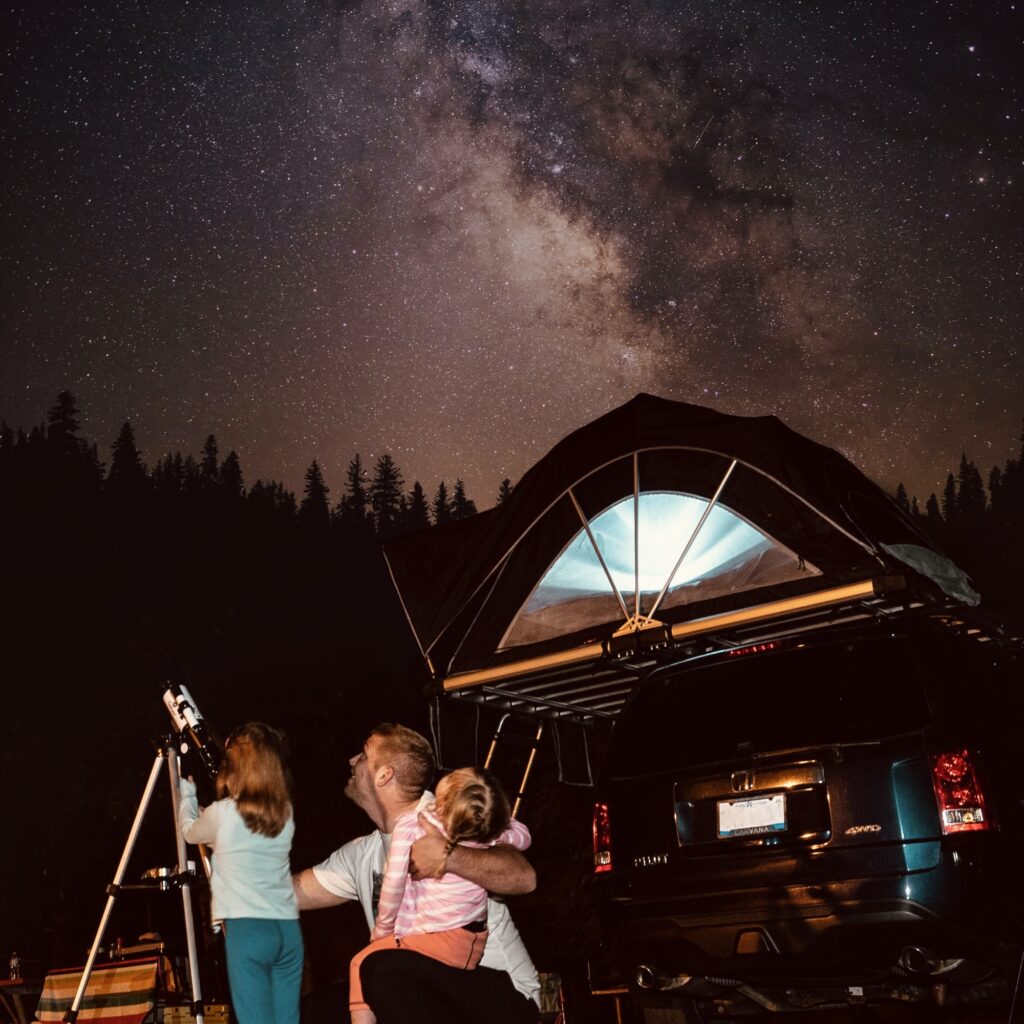Overview:
- Packing Hacks
- Shelter Hacks
- Food and Cooking Hacks
- Shelter and Comfort
- Fun and Entertainment
Camping offers an escape from the hustle and bustle of daily life, allowing people to reconnect with nature, enjoy the great outdoors, and experience a sense of adventure. Whether you’re a seasoned camper or a newbie, having a set of reliable hacks can make your camping trip smoother, more enjoyable, and more efficient. In this blog, we’ll share some of the best camping hacks that will enhance your camping experience, from packing tips to food prep, shelter solutions, safety measures, and entertainment ideas.
Packing Hacks
1. Have a Packing Checklist
The foundation of any successful camping trip is thorough preparation. A well-thought-out packing checklist ensures that you don’t forget essential items. Start with the basics: shelter (tent, tarp), sleeping gear (sleeping bag, sleeping pad), cooking supplies (stove, fuel, utensils), food, clothing, and safety equipment (first aid kit, navigation tools).
2. Rolling Clothes Instead of Folding
Maximize your backpack space by rolling your clothes instead of folding them. This not only saves space but also reduces wrinkles. Organize outfits by day or type, and pack them in resealable bags to keep them dry and easily accessible.
3. Using Dry Bags and Compression Sacks
Keep your gear dry and organized with dry bags and compression sacks. Dry bags are waterproof and great for storing clothes and electronics. Compression sacks reduce the bulk of your sleeping bag or clothes, freeing up more space in your backpack.
4. Multi-Use Items
Pack items that serve multiple purposes to save space and weight. Bandanas can be used as headwear, towels, or even makeshift slings. Duct tape is invaluable for repairs, blister prevention, and even making temporary fixes to gear.
5. Packing Light but Effectively
Focus on packing lightweight, high-performance gear. Choose items made from lightweight materials and look for compact, foldable versions of camping essentials. Prioritize what you truly need to avoid overpacking.

Shelter Hacks
1. Choosing the Right Campsite
Selecting the right campsite is crucial for comfort and safety. Look for flat, elevated ground to avoid flooding, and check for potential hazards like dead trees or rocks. Proximity to water sources is important, but ensure you’re far enough to avoid insects and wildlife.
2. Quick Tent Setup Tips
Practice setting up your tent at home to become familiar with the process. Use color-coded or numbered poles to speed up the setup. Keep the instructions handy, and always carry extra stakes and guy lines.
3. DIY Tent Repair Kit
Create a DIY tent repair kit to handle unexpected damages. Include items like duct tape, fabric patches, a needle and thread, and spare tent poles. These tools can save your trip if your tent suffers a tear or broken pole.
4. Keeping the Tent Dry and Ventilated
Prevent moisture buildup inside your tent by using a groundsheet or footprint. Ensure your tent is properly ventilated by opening vents and windows to reduce condensation. A small hand towel can be useful for wiping down any moisture that does accumulate.
5. Ground Insulation Techniques
Stay warm by insulating the ground beneath your sleeping area. Use a foam pad, reflective emergency blanket, or even a layer of pine needles to create a barrier between you and the cold ground. This can make a significant difference in maintaining body heat.

Food and Cooking Hacks
1. Pre-Prepping Meals
Simplify mealtime by pre-prepping your meals at home. Chop vegetables, marinate meats, and portion out spices and ingredients ahead of time. Store them in resealable bags or containers for easy access and minimal mess.
2. Portable and Efficient Cooking Gear
Invest in portable, efficient cooking gear like a compact camping stove, lightweight cookware, and reusable utensils. These items are designed to save space and weight while providing the functionality you need for cooking in the wilderness.
3. Fire-Starting
Starting a fire can be challenging, especially in damp conditions. Pack waterproof matches, a lighter, and fire starters such as cotton balls soaked in petroleum jelly or commercial fire-starting blocks. Gather dry kindling and tinder before attempting to start your fire.
4. Quick and Easy Campfire Recipes
Prepare quick and easy campfire recipes that require minimal ingredients and cooking time. Some favorites include foil packet meals, skewered kabobs, and one-pot dishes like chili or stew. Don’t forget classic s’mores for dessert!
5. Keeping Food Fresh Without a Cooler
Keep perishable food fresh without a cooler by using techniques like freezing meals ahead of time, storing food in airtight containers, and using natural coolers like streams or shaded areas. Dry goods like pasta, rice, and canned foods are also great for camping.

Safety and Comfort Hacks
1. First Aid Essentials
A well-stocked first aid kit is essential for any camping trip. Include bandages, antiseptics, pain relievers, tweezers, and any personal medications. Knowing basic first aid skills can make a significant difference in an emergency.
2. Insect Repellent
Keep insects at bay with effective repellents. Use a combination of natural options like citronella candles and essential oils, and commercial products like DEET or permethrin-treated clothing. Wearing long sleeves and pants during peak insect activity times can also help.
3. Staying Warm in Cold Weather
Staying warm is crucial for a comfortable camping experience. Layer your clothing, starting with moisture-wicking base layers, followed by insulating mid-layers and a waterproof outer layer. Use a sleeping bag rated for the expected temperatures and add a sleeping bag liner for extra warmth.
4. Sun Protection Strategies
Protect yourself from the sun with appropriate clothing, sunscreen, and hats. Wear lightweight, long-sleeved shirts and pants made from UV-protective fabric. Apply sunscreen regularly, especially to exposed areas like your face, neck, and hands.
5. Navigational Aids
Stay safe by carrying reliable navigation tools. A map and compass are essential, and a GPS device or smartphone with offline maps can be invaluable. Learn basic navigation skills to avoid getting lost and always inform someone of your planned route.
Fun and Entertainment Hacks
1. Simple and Fun Outdoor Games
Bring along simple outdoor games to keep everyone entertained. Frisbees, playing cards, and travel-sized board games are easy to pack and provide hours of fun. Scavenger hunts and nature bingo are great ways to engage with your surroundings.
2. Creative Campfire Activities
Enhance your campfire experience with creative activities. Storytelling, singing songs, and roasting marshmallows are classic campfire pastimes. Try making campfire popcorn or teaching each other new skills like knot-tying or whittling.
3. Stargazing
Stargazing is a magical part of camping. Choose a campsite with minimal light pollution, and bring a star chart or astronomy app to identify constellations and planets. A pair of binoculars can enhance your stargazing experience by revealing more details in the night sky.
4. DIY Nature Crafts
Engage your creativity with DIY nature crafts. Collect leaves, stones, and twigs to create natural art projects. Make leaf rubbings, paint rocks, or weave pine needles into small baskets. These activities are fun for all ages and help you connect with nature.

Camping is a wonderful way to reconnect with nature and enjoy a break from the daily grind. By incorporating these camping hacks, you can make your trips more efficient, comfortable, and enjoyable. From packing smart and setting up the perfect campsite to preparing delicious meals and staying safe, these tips cover all the bases. So, the next time you head out into the great outdoors, try out these hacks and see how they can enhance your camping experience. Don’t forget to share your own camping hacks and stories with fellow campers!
